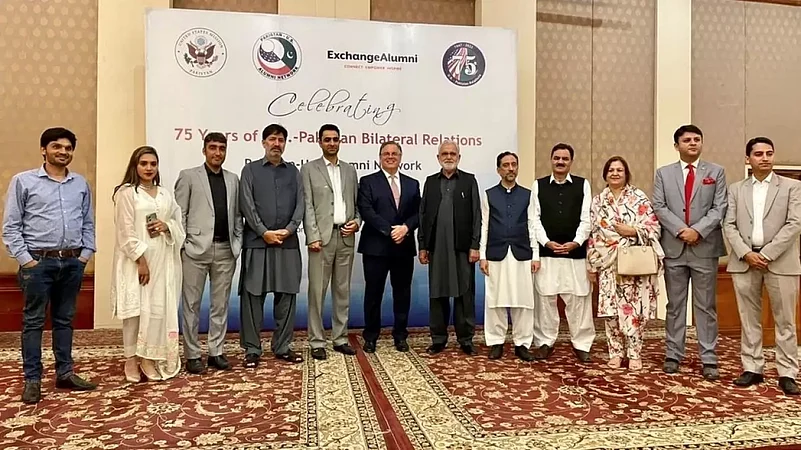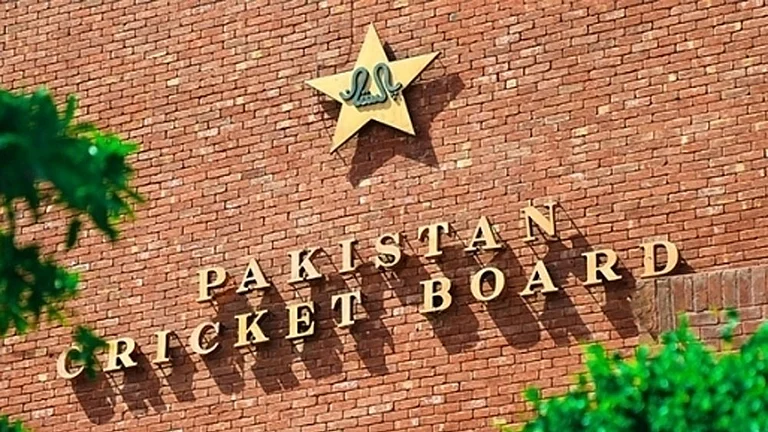India has conveyed objections to the United States over its Pakistan envoy's visit to the Pakistan-Occupied Jammu and Kashmir (POJK) and calling it Azad Kashmir.
New Delhi has also objected to meetings held by the Ambassador of the United States to Pakistan in POJK, said the Ministry of External Affairs (MEA).
"Our objection to the visit and meetings in Pakistan-Occupied Jammu and Kashmir by the US ambassador to Pakistan has been conveyed to the US side," said MEA spokesperson Arindam Bagchi at a media briefing.
US envoy Donald Blome has been touring the POJK lately, which Pakistan calls "Azad Jammu and Kashmir". In tweets, the Embassy of the United States in Pakistan refers to the occupied territory as "AJK", echoing the Pakistani claim.
Pakistan invaded Jammu and Kashmir in 1947 and captured a chunk of the state. The then-Maharaja of Jammu and Kashmir Hari Singh acceded the state to India and India fought a war with Pakistani invaders, which ended in 1948. Since 1947-48, Pakistan has continued to hold the occupied territories which it calls in part "Azad Jammu and Kashmir", shortened to AJK. "Azad" means free. It implies that the J&K not with Pakistan is not free.
The usage of such words by US diplomats is seen as an acceptance of Pakistani position on the Kashmir conflict.
Independent experts first flagged this on October 2. But since then, there has been no indication that the US mission in Pakistan intends to change their wording since repeated tweets mentioning "AJK" have been made.
National security and foreign policy commentator Kunal Singh wrote on Twitter that the continued usage of "Azad Jammu and Kashmir" suggests all is not well in the India-US relationship and that the United States, at least for now, is not particularly interested in improving ties with India.
"Reasonable to conclude that the US is not interested in better relations with India at this point. And before someone raises the “democratic backsliding in India” rationale, let me point out that Pakistan is a quasi-military state with a pathetic record on human rights," said Singh on Twitter.
However, it has been highlighted that "Azad Jammu and Kashmir" is the official name of the state and US diplomats likely don't have an alternative, since not using the name would mean they are violating sovereign claims of their host country. But experts maintain the usage is still problematic.
"In my opinion, US officials should not be using AJK/Azad Kashmir. Because the USG takes no position on the sovereignty dispute, officials should be using the most neutral terminology available. 'Azad Kashmir' violates that principle and should be removed from the lexicon of US diplomats," said Jeff M Smith, the Director of Asian Studies Center at The Heritage Foundation.
He further said, "Indian-administered Kashmir and Pakistan-administered Kashmir are unwieldy but appropriate. It's complicated by the fact that AJK is the actual name of the administrative region. If US officials can say Ladakh, why can't they say AJK? It's a fair point but 'Azad Kashmir' carries a connotation that Ladakh/J&K UTs don't. Can US officials use AJK? Yes. Should they? In my opinion, no.
This is not the first time that New Delhi has reacted to visits by US officials to POJK. In April, US Congresswoman Ilhan Omar visited POJK, drawing sharp reaction from India.
"We have noted that US representative Ilhan Omar has visited a part of the Indian union territory of Jammu and Kashmir that is currently illegally occupied by Pakistan. If such a politician wishes to practice her narrow-minded politics at home, that may be her business. But violating our territorial integrity and sovereignty in its pursuit makes it ours. This visit is condemnable," said MEA at the time.
Omar, a vocal critic of the Narendra Modi government, had met former Pakistan Prime Minister Imran Khan during her visit.
(With PTI inputs)


























